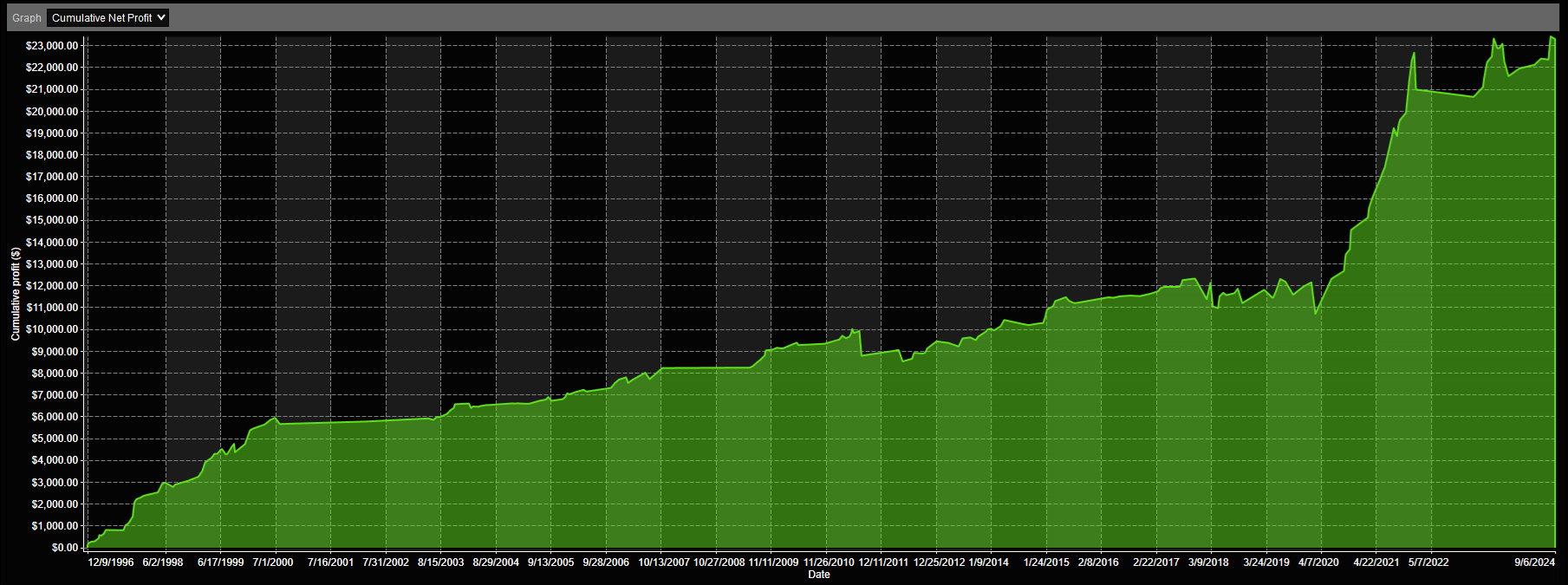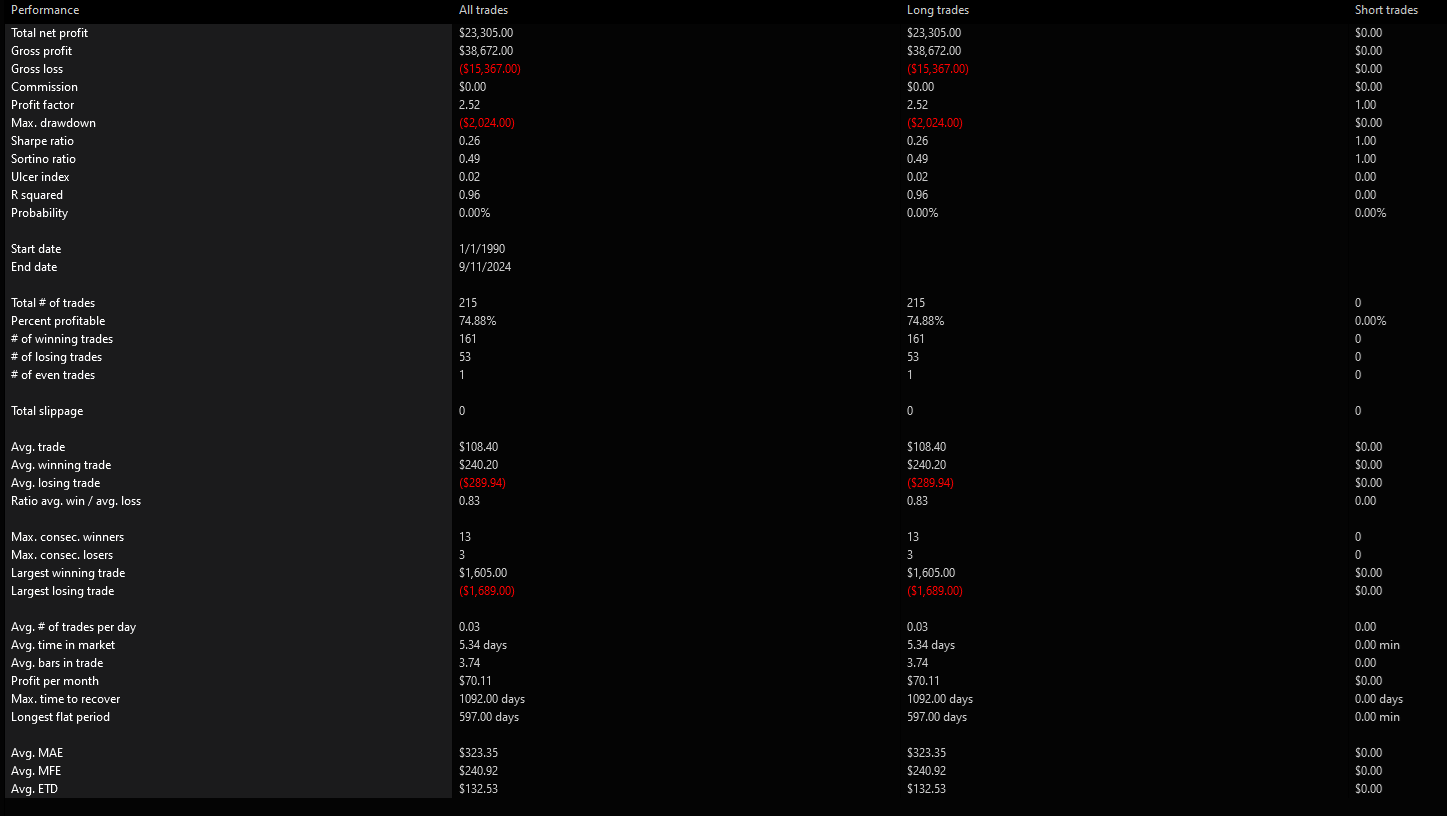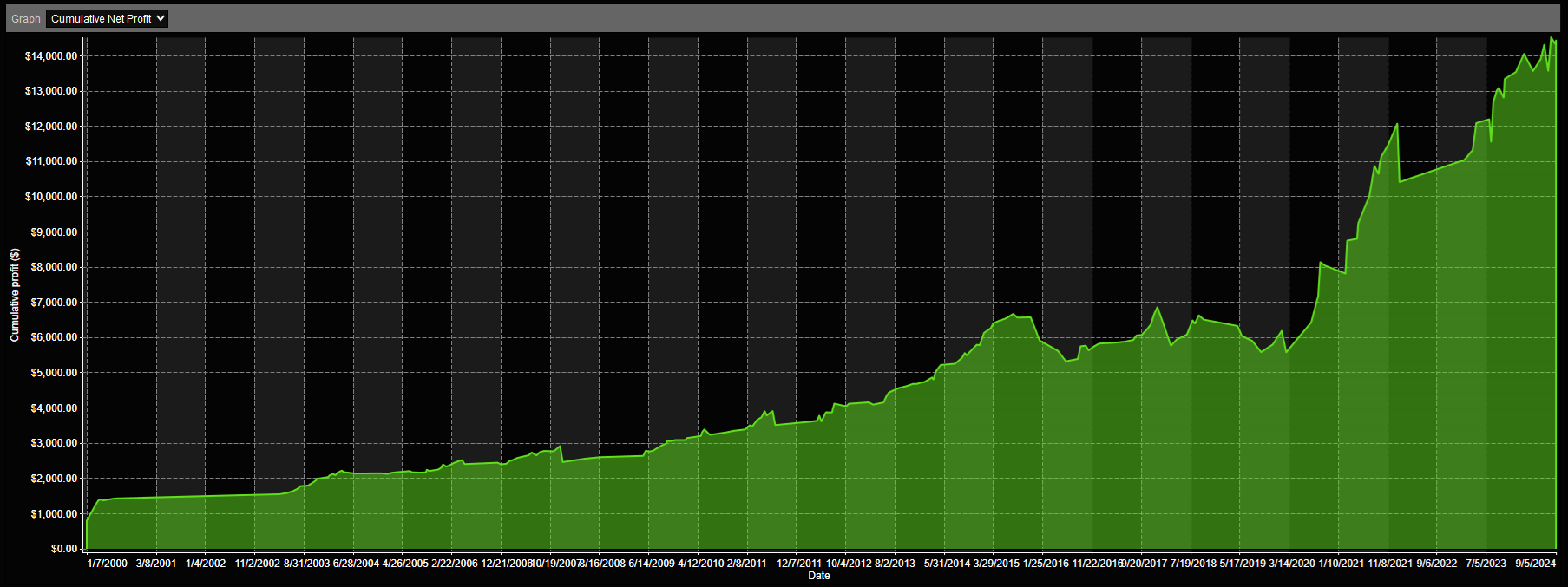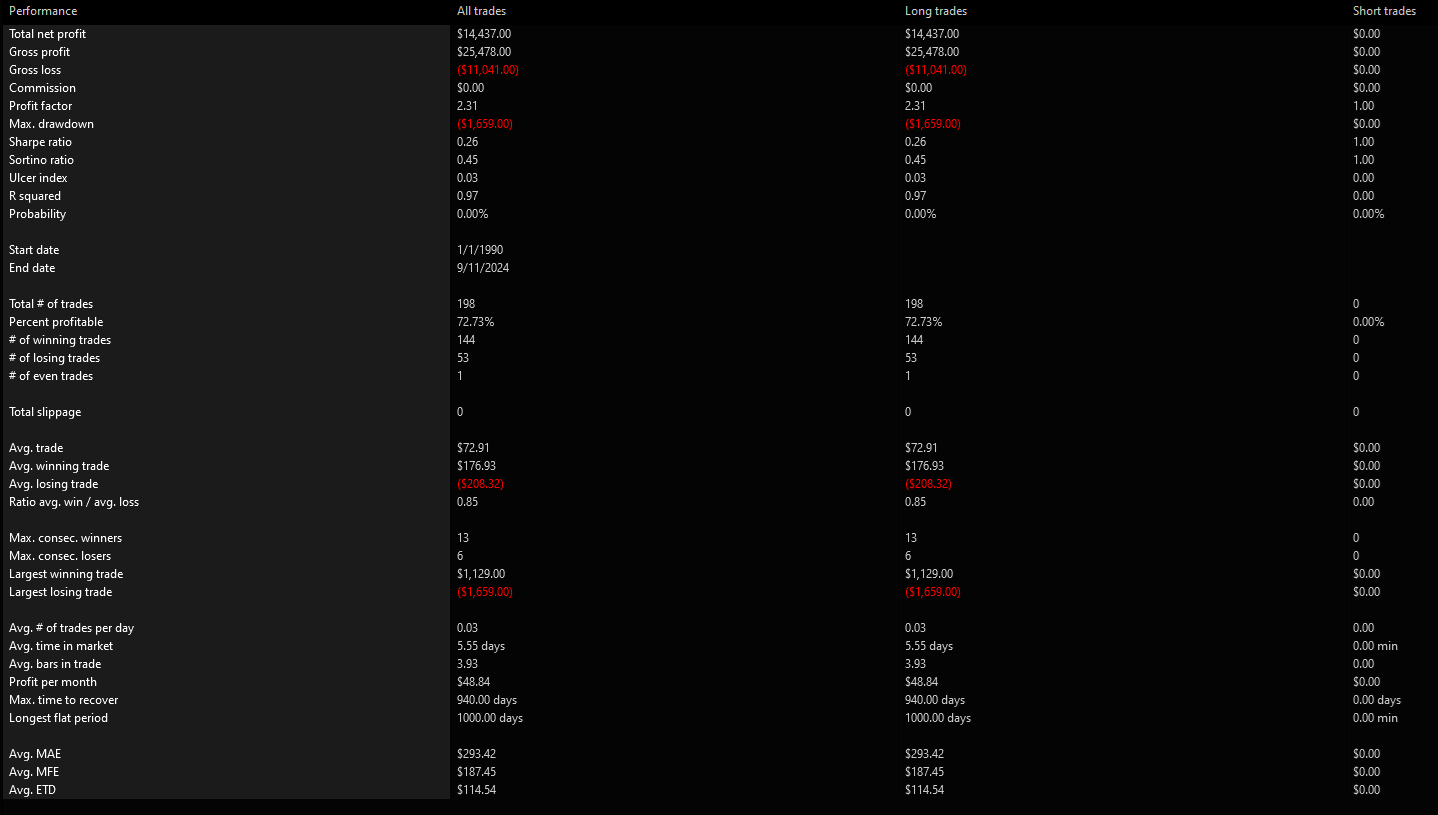47 lines
1.8 KiB
Markdown
47 lines
1.8 KiB
Markdown
# Cumulative RSI
|
|
|
|
This strategy was taken from chapter 9 of [*Short Term Trading Strategies That Work*](https://moshferatu.dev/moshferatu/short-term-trading-strategies-that-work) (2008) by Larry Connors.
|
|
|
|
It is based on the [Cumulative RSI indicator](https://moshferatu.dev/moshferatu/ninjatrader/src/branch/main/indicators/cumulative-rsi) described in the book.
|
|
|
|
## Rules
|
|
|
|
An alternate set of rules is provided in chapter 12 as follows:
|
|
|
|
1. The asset (e.g., SPY) is above its 200-day moving average.
|
|
2. If the 2-day cumulative 3-period RSI is below 45, enter a long position.
|
|
3. Exit the position when the 2-period RSI is above 65.
|
|
|
|
## Parameters
|
|
|
|
**Cumulative RSI Period**: The period to use in the RSI calculation. (Default: 2)
|
|
|
|
**Cumulative RSI Smoothing**: The smoothing to use in the RSI calculation. (Default: 1, no smoothing)
|
|
|
|
**Cumulative Period**: The number of RSI values to add up. (Default: 2)
|
|
|
|
**RSI Period**: The period of the RSI used to exit trades. (Default: 2)
|
|
|
|
**RSI Smoothing**: The smoothing of the RSI used to exit trades. (Default: 1)
|
|
|
|
**SMA Period**: The period used to calculate the long term trend as measured using a simple moving average. (Default: 200)
|
|
|
|
**Entry Threshold**: The Cumulative RSI threshold below which a trade is entered. (Default: 35)
|
|
|
|
**Exit Threshold**: The RSI threshold above which a trade is exited. (Default: 65)
|
|
|
|
## Backtest Results
|
|
|
|
### SPY
|
|
|
|

|
|
|
|

|
|
|
|
### QQQ
|
|
|
|

|
|
|
|

|
|
|
|
--- |